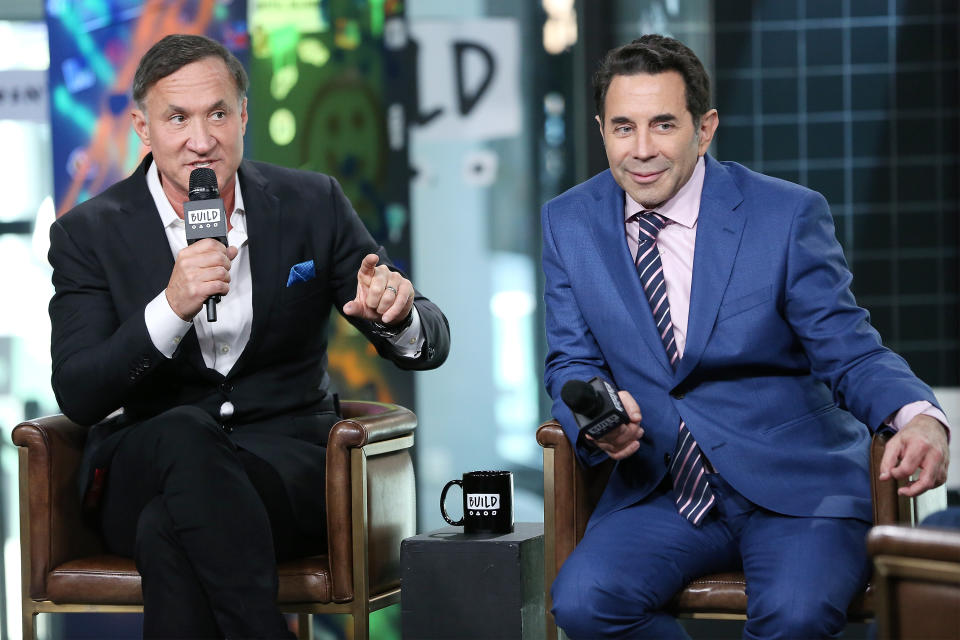'Botched' plastic surgeons on the risks of fillers: 'Non-invasive procedures can lead to blindness'
After four years on air with their hit reality show Botched, Dr. Paul Nassif and Dr. Terry Dubrow are more than just top-notch plastic surgeons — they’re household names. They’re also deeply trusted by their millions of viewers, a fact which puts them in a unique position to spread awareness about plastic surgery and its dangers. While plastic surgery is so culturally pervasive it can feel casual, the Botched doctors are quick to put the risks of any type of procedure out there.
At the BUILD studios on Monday while promoting new episodes of their series, which begin airing this week, Dr. Dubrow and Dr. Nassif brought up the reality that “botched” plastic surgery is on the rise, and they put forth a hypothesis as to why that is. “There’s this phenomenon we call ‘Snapchat dysmorphia,'” Dr. Dubrow told the studio audience. “Patients filter themselves on Snapchat or Instagram and they have an idealized version of what they’d like to look like. And they realize they don’t look like this and they start to get anxiety over it and they go into their plastic surgeons office at high rates now, and say ‘I need to look like this.’ So there’s a lot more plastic surgery happening.”

The doctors stressed that even seemingly minimal or non-invasive procedures, perhaps even some of those inspired by ‘Snapchat dysmorphia,’ come with risks. “Blindness, it’s not too uncommon,” Dr. Nassif said of one of the dangerous side effects of filler. Adding, “In addition, necrosis — losing the tip skin. Bad infections.
“You have to make sure you’re going to what we call, an experienced injector,” Dr. Nassif said of finding the right person to do non-surgical procedures. “Even the little non-invasive radio frequency to tighten up skin, complications can occur.”
“It’s important to understand the words ‘non-invasive,’ we plastic surgeons like to say that because it sounds like it’s not scary, or not risky,” Dr. Dubrow added. “Non-invasive procedures can lead to blindness, non-invasive procedures can lead to your entire cheek turning black on you so, it’s just important to understand: go to someone who is very experienced and even in their hands (or our hands) these things can happen.”
Read more from Yahoo Lifestyle:
Follow us on Instagram, Facebook, and Twitter for nonstop inspiration delivered fresh to your feed, every day.


